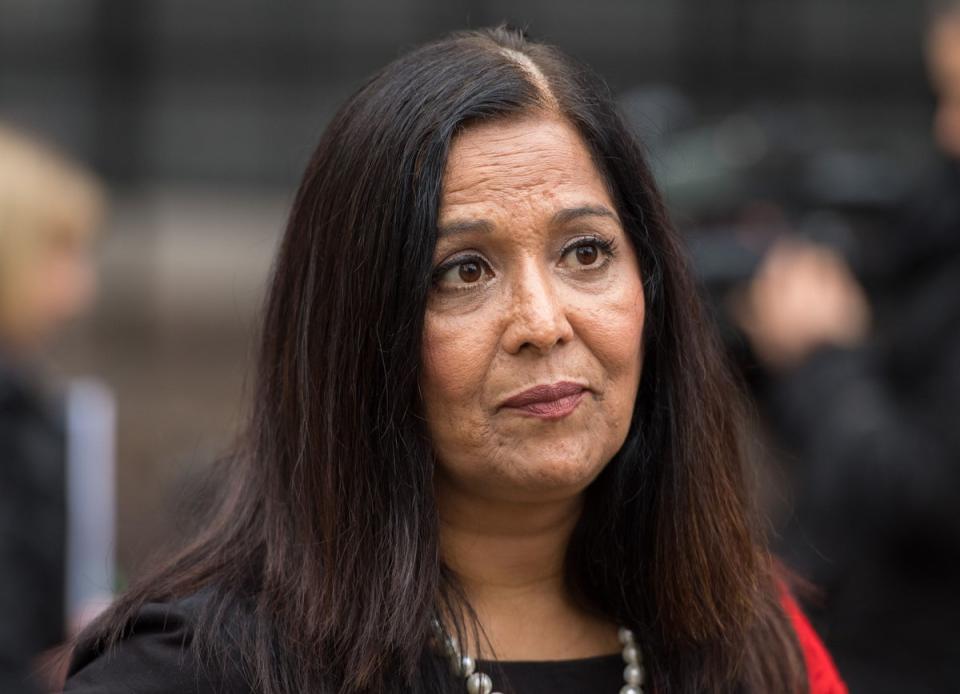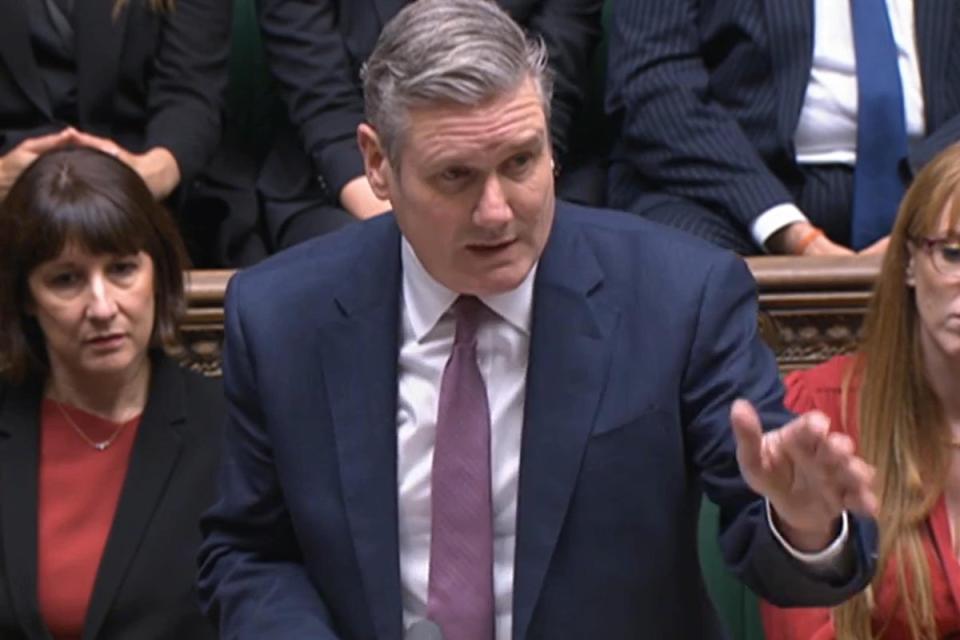Blow for Starmer as 10 frontbenchers quit or are sacked amid mass rebellion over his Gaza ceasefire stance
Sir Keir Starmer has suffered a major blow to his authority after Labour MPs staged a mass rebellion over his stance on a ceasefire in Gaza.
A total of eight members of the Labour leader’s frontbench resigned or were sacked as more than a quarter of his MPs defied him to support an immediate cessation in the fighting.
Jess Phillips, shadow minister for domestic abuse, was the most high-profile member of the frontbench to quit as 56 Labour MPs in the House of Commons backed the call for a ceasefire.
Ms Phillips said she had resigned with a “heavy heart” but added that she could see “no route where the current military action does anything but put at risk the hope of peace and security for anyone in the region now and in the future”.
The Labour leader has called for a humanitarian pause in the war and warned a full-scale ceasefire would only “embolden” Hamas to regroup and plan more atrocities.
Labour MPs had been ordered to back the party’s amendment to the King’s Speech, in line with that position.
They were also on a three-line whip to abstain on the SNP’s amendment calling for a ceasefire. MPs voted 293 to 125, majority 168, to reject the SNP’s King’s Speech amendment calling for “all parties to agree to an immediate ceasefire” in Gaza. But 56 Labour MPs backed the position.
Yasmin Qureshi, the shadow women and equalities minister and MP for Bolton South, was the first to announce she had resigned to back the SNP call. She described the scale of bloodshed in Gaza as “unprecedented” and said MPs had to “call for an end to the carnage to protect innocent lives and end human suffering”.
She was followed by Afzal Khan, the shadow minister for exports and MP for Manchester Gorton, who said supporting a ceasefire was “the very least we can do”.

Paula Barker, shadow minister for devolution and the English regions and MP for Liverpool Wavertree, also anounced she would be standing down saying she had to follow “my conscience”.
As well as the shadow ministers who quit, frontbenchers Rachel Hopkins, Sarah Owen, Naz Shah and Andy Slaughter also quit after breaking the party whip to back the amendment.
Parliamentary private secretaries Dan Carden and Mary Foy have also left their positions on the frontbench, said Labour.
Sir Keir said he regretted that party colleagues had not backed his position, but added: “I wanted to be clear about where I stood, and where I will stand.”
Before the vote more than 70 Labour MPs had publicly backed calls for a ceasefire in Gaza. But a Labour spokesperson said that a Commons vote was a different matter, adding: “This is a whipped vote and every MP knows what the consequence of that means.”

During Wednesday’s Commons debate, Ms Shah was the first Labour frontbencher to tell MPs that she intended to support the amendment. She was followed by shadow minister Helen Hayes, MP for Dulwich and West Norwood, who told the Commons that “a ceasefire is surely the minimum we should be demanding in the face of such horrific suffering”.
Labour’s decision not to back a ceasefire has also prompted the exodus of a series of councillors from the party, and Sir Keir was forced to hold a crunch meeting last month with a group of Muslim Labour MPs to address anger over his handling of the crisis – including comments in which he appeared to back the cutting of power and water to Gaza.
However, frontbencher Imran Hussain ultimately resigned “with a heavy heart” last week, saying he was quitting his role as a shadow minister to be able to “strongly advocate” for a ceasefire.
The Commons showdown came as Israel’s forces entered Gaza’s al-Shifa hospital, which Israel insists sits atop a military headquarters used by Hamas. Medics have warned of more civilian casualties, with the troops’ encirclement of the hospital in recent days already blamed for the deaths of dozens of patients.


